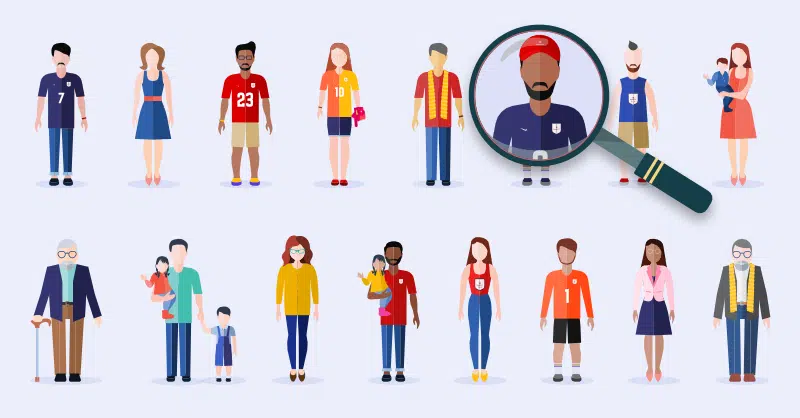How hyper-personalisation is reshaping sport
June 1, 2023
In this piece EngageRM’s Global Head of Marketing, Callum Chambers, takes a look at why hyper-personalisation is needed in sport and what sport can learn from other industries.
Everywhere you look, our experiences and interactions are becoming drastically more personalised. As technology evolves, organisations can connect on a much deeper level with their customers, in what is now a new battleground for the sports industry.
I mean, who doesn’t like to feel special right?
Here’s a few well-known consumer examples:
Spotify: If you had 450M subscribers, it would feel like a tall task to personalise each individual experience. Not for Spotify, thanks to its discovery and recommendation AI engine.
You know when you aren’t sure what you want to listen to on your morning walk? Hit the Discovery Weekly tile and it gifts you a bunch of songs you have never listened to but are magically tailored to your taste. Or the Spotify Wrapped feature at the end of each year that everyone posts on their Instagram, which makes you feel like Spotify really ‘get’ you. That’s no accident.
Netflix: If you are like us, you spend a lot of time scrolling through Netflix. No, it’s not perfect, but in the background, Netflix is using AI to generate 76,000 micro-genres to help categorize viewer preferences, just for you. They will even A/B test multiple artwork thumbnails depending on your psychology and preferences.
Your local Coffee shop: You know, the one you’ve been going to for a little while now and when you arrive, you’re greeted by name (unless its Starbucks, where they’ll butcher the spelling) and already know your order? Even that micro-example makes you much more likely to come back, to the point it feels like you’re cheating on them when you go somewhere else for your caffeine hit.
So, where do sports teams and organisations fit in here? While they might be battling on field with each other, their off-field competition are the likes of Amazon, Spotify and Tiktok, where people are having these very tailored experiences. There is now an expectation from customers to be understood and catered for in the same way, by the teams they love.
Untapped opportunity
Sports teams have one huge advantage over the average business, and that’s the emotional connection fans have with them. I mean, what other business could break your heart week after week and yet you still come back with the whole family, sit in the stands, buy a scarf and a hot dog? Only in sport do you have that innate, undying loyalty that fans have.
And that’s something that teams have historically taken for granted.
So how are we communicating to them? A lot of the time, its via megaphone marketing. You’ve likely got a few of these sitting in your inbox, and they probably read like this:
In the business world, a Deloitte report suggests that 80% of customers are more likely to purchase from companies that offer personalized experiences.
Sports teams and organisations have always had the luxury of undying loyalty, so they haven’t had the burning platform to lean into this. The LA Lakers might know that they’ll sell out Crypto Arena regardless – but not everyone has that luxury.
And that’s why this is so important. Sport is at the very beginning of the personalization journey, which means there is mountains of value waiting to be unlocked.
Lesson from the NBA
A great example of this in practice is some work we recently did with one of our NBA customers. After ensuring the data was spot on, we targeted fans that had purchased certain sections at their arena the season prior.
From a single email template, we delivered personal introductory emails to each fan – thousands of fans – with a personalised greeting, an image of their (new) contact representative (some whom they knew personally), along with a few of their rep’s personal interests – fishing, cooking, or their favourite dunk from last season. There were 12 dynamic versions of the email, and it made those fans feel like they were being communicated with on a truly personal level.
While it took upfront time to develop each of these emails, the customer’s strike-rate of renewal for the following season in those premium tickets was much higher than it would have been with a general blast email. Not to mention it saved a lot of time for the reps creating an email for every single person.
That’s the power of having strong membership and ticketing data, to then interact with those ‘superfans’ who may have otherwise been ‘on the fence’ for the next season.
There you can see the value of hyper-personalisation and the technology behind it that enables these interactions. Fans want to feel truly connected with their team and the humans that power them, and this is a sure-fire way to sell more tickets and ensure deeper brand loyalty.


